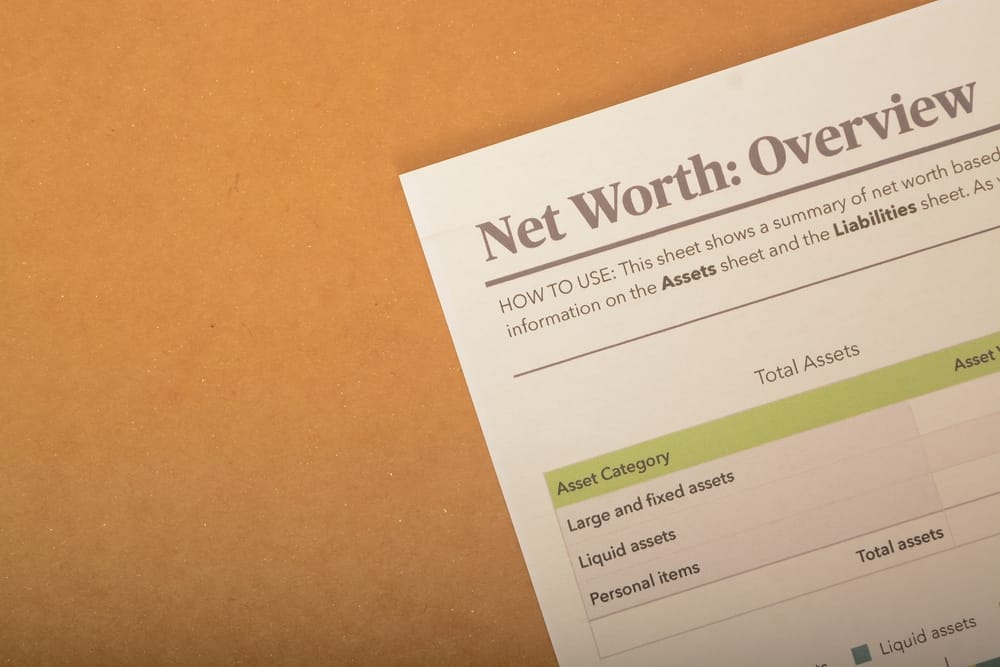
Many middle-class families believe they’re building wealth—until they realize their “net worth” isn’t as solid as it looks on paper. Between inflated home values, debt, and misunderstood assets, millions of Americans overestimate how financially stable they really are. True wealth isn’t just what you own—it’s what you keep and control. Here are seven net worth myths that quietly fool middle-class households into false confidence.
1. “Owning a Home Automatically Makes You Wealthy”
Homeownership is often seen as the ultimate financial milestone, but equity can be misleading. The Federal Reserve notes that home values fluctuate, and costs like taxes, insurance, and maintenance reduce real gains. Unless you sell or downsize, that equity isn’t liquid—it’s just potential wealth tied up in walls and floors. The myth that “home = wealth” blinds many homeowners to the importance of having cash flow and investment diversity.
2. “Net Worth Equals Financial Freedom”
Having a high net worth doesn’t mean you can stop working. Many high-net-worth households still live paycheck to paycheck due to lifestyle inflation and poor liquidity. True financial freedom means passive income covers your expenses—not just that your assets outweigh liabilities. Without steady, accessible income sources, net worth becomes a vanity number instead of a safety net.
3. “Retirement Accounts Are Safe from Market Volatility”
Many households believe their 401(k)s and IRAs guarantee security, but that’s far from true. Retirement accounts can lose value during downturns. Overreliance on market-based accounts without diversification—like real estate, bonds, or annuities—can leave retirees exposed. Net worth on paper can drop dramatically overnight when it’s tied too closely to market swings.
4. “Debt Doesn’t Matter If You Have Assets”
The middle class often leans on credit cards, car loans, and home equity debt to maintain appearances. Even “manageable” debt limits your ability to save, invest, or weather emergencies. Having a $500,000 home and $400,000 in debt doesn’t make you rich—it makes you leveraged. Debt repayment should be part of wealth-building, not wealth justification.
5. “Your Income Determines Your Net Worth”
Income fuels savings, but it’s not the same as wealth. High earners can have negative net worth if they overspend or fail to invest. Building true net worth depends on disciplined saving, compound growth, and controlled expenses—not just higher paychecks. Without balance, more income simply creates more expensive habits.
6. “You Don’t Need to Track Your Net Worth Regularly”
Ignoring your net worth can cause financial drift. The National Endowment for Financial Education (NEFE) found that people who track their net worth quarterly are 60% more likely to meet financial goals. Assets depreciate, debts grow, and markets fluctuate. Updating your numbers regularly helps you make smarter choices—like rebalancing investments or cutting unnecessary expenses before they spiral.
7. “Middle-Class Wealth Is Secure Because It’s Diversified”
Many households believe they’re diversified because they own a home, a retirement account, and maybe some savings—but that’s not true diversification. Real diversification spreads risk across multiple asset types, including cash, equities, real estate, and alternative income streams. Over-concentration in one country or asset class increases vulnerability. The middle-class portfolio is often “diversified” only in appearance.
Real Wealth Requires Clarity, Not Comfort
Net worth is a snapshot, not a safety guarantee. Understanding what’s liquid, what’s growing, and what’s vulnerable separates stable households from those just treading water. Build a plan that measures progress, not just possessions.
Have you checked your real net worth recently? Share whether your biggest surprise was what you owned—or what you owed—in the comments.
You May Also Like…
- Why Some Boomers Are Lying About Their Net Worth
- 10 Assets That Will Dramatically Improve Your Net Worth
- How Often Should You Check Your Net Worth?
- 10 Mortgage Interest Secrets Everyone Learns After Buying Their First Home
- 10 Retirement Strategies That Leave Couples Financially Stranded in Their 60s

Teri Monroe started her career in communications working for local government and nonprofits. Today, she is a freelance finance and lifestyle writer and small business owner. In her spare time, she loves golfing with her husband, taking her dog Milo on long walks, and playing pickleball with friends.






Comments